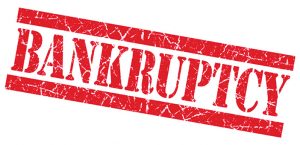The CEO’s personal responsibility for payment in the event of a capital shortage
If the Board has reason to assume that the equity has been consumed to more than half or if the Crown Prosecution Authority has made a foreclosure attempt and it has been found that the company lacks forcible assets. Then the Board of Directors shall prepare a control balance sheet & call the Annual General Meeting. Upon this call the Annual General Meeting shall decide whether the business should be continued or liquidated. If they do not do so, to the personal payment responsibility for the board starts. If you as CEO know about the Board’s failure to establish control balance sheets but do not take any measures, so you as CEO can also together with the become personally liable for payments.
The CEO’s personal payment responsibility for prohibited loans
According to the Swedish Companies Law, companies are not allowed to lend money to the board member, the CEO, shareholders or related parties. Neither it is allowed to lend money to companies that have a controlling influence. If you as CEO decide for such a payment, you can be fined or imprisoned.
The CEO’s personal payment responsibility for unpaid taxes
If the company does not pay Social security fees , does not make tax deductions, pay income tax, VAT, tax surcharges and other fees to Skatteverket, both the board and you as the CEO can become personally liable for these payments.
In order, to avoid unpleasant situations, the bankruptcy filing for the company or your resignation must be registered before these taxes become due.
The CEO’s personal payment responsibility for illegal value transfer
Illegal transfer of value is, for example, a dividend that reduces the company’s equity to more than unrestricted equity, or an illegal gift for a public benefit or a disguised profit distribution.
In these cases, the recipient of the value transfer will normally be required to pay a refund. But if there is a shortage of capital in the company after the repayment, the board mebers and you as the CEO, who contributed to the decision, can get a personal payment responsibility.
The CEO’s personal payment responsibility for late annual report submitted to Bolagsverket
Unless the Board of Directors or you as the CEO have not submitted the company annual report after 15 months after the year end, you will be personally liable for the debts that arise for the company as a result of fines from Bolagsverket.
Forced liquidation of the company, initiated by Bolagsverket, normally begins after 15 months.

